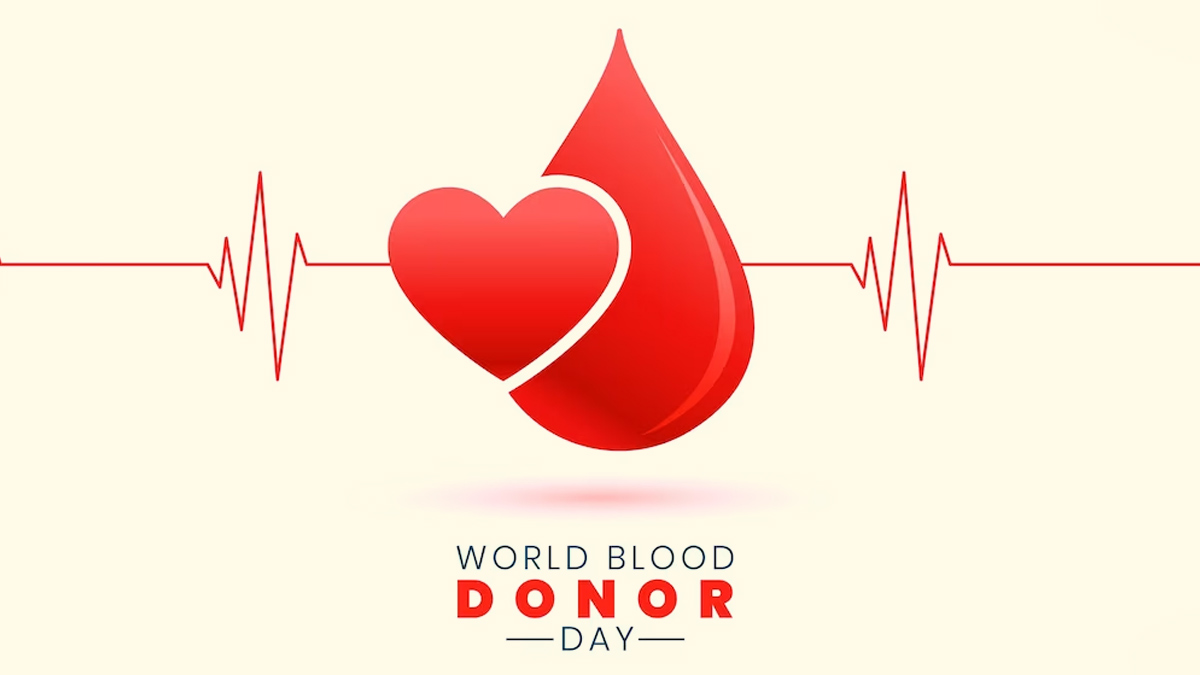
Everyone knows that donated blood is a significant lifeline for the healthcare sector. It plays a valuable role in helping to save the lives of people who suffer from medical conditions, patients scheduled to undergo surgery, patients undergoing cancer treatment, and those battling blood diseases. Blood is also a valuable resource for saving the lives of women who are suffering from pregnancy-related complications, people who have suffered accidents, and children who have severe Anaemia.
Considering this, every hospital and medical care provider requires a regular supply of donated blood, mainly because it can only be stored for a limited period before it is used. In most cases, red blood cells can be stored for 42 days and platelets for five days, after which they cannot be used for transfusions. This means that regular donations by healthy individuals can go a long way in ensuring that blood is always available whenever and wherever it is required.
On the occasion of World Donor Day, June 14, Dr Sudhir Gore, Head-Trauma & Emergency Services, Fortis Hospital, Kalyan, Mumbai, explained about what you should consider before, during and after blood donation.
What To Keep In Mind Before Donating Blood
Blood donations have always been encouraged among individuals who are healthy (and weigh above 45 kgs) and are above the age of 18. This is because their blood can help to save one or multiple lives, since blood is usually separated into components like red cells, platelets and plasma and then given to a patient depending on their specific conditions.
Before donating blood, here is what every donor should keep in mind:
- Find and donate blood at a blood bank near your residence
- Donors must focus on an iron-rich diet, like red meat, fish, poultry, beans, spinach,iron-fortified cereals or raisins. Additionally, make sure to drink sufficient amounts of liquid as well
- Importantly, the donor should ensure they sleep well before donating
- Wear comfortable clothing like a shirt with sleeves so it is easy to roll them above the elbows

Once the donor has reached the place for donation, below are some points that they should keep in mind:
- Before heading out, ensure you carry some form of identification like a driving licence, Voter ID, passport, etc.
- If the donor has taken any prescription or over-the-counter medications, they must inform the medical staff before donating blood
- Relax, listen to music, talk to other donors, or read while the donation is happening
Also read: Kidney Disease And Hypertension: How Does It Affect Your Blood Sugar Level
Things To Consider After Donating Blood
After donating blood, the below tips can help the donor get back on their feet faster:
- Relax for a few minutes after the donation ends - have some cookies, juice, or other snacks. The human body requires 500 calories to replace the amount of blood extracted during one round of blood donation, which is why the snacks and juices are free calorie treats for the donor
- Drink four extra glasses of liquids and refrain from consuming alcohol over the next 24 hours
- Any form of heavy lifting or vigorous exercise must be done before blood donation and not after
- If a donor donates regularly, they should take their multivitamins with Iron to ensure that they replenish their Iron stores before the next donation

Also read: New Blood Test Can Detect 50 Different Types Of Cancer
Finally, the gratification of donating blood is a feeling that must be shared with family/ friends so that they also donate their blood to those in need.
Also watch this video
How we keep this article up to date:
We work with experts and keep a close eye on the latest in health and wellness. Whenever there is a new research or helpful information, we update our articles with accurate and useful advice.
Current Version